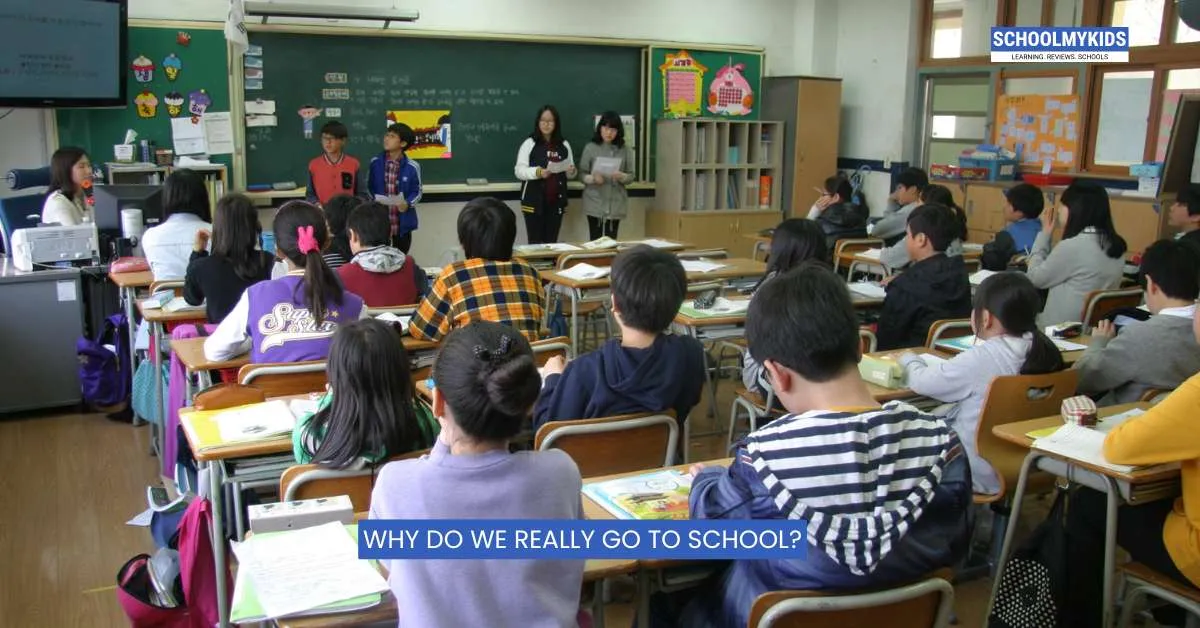Why do I have to go to school?" It’s the universal lament of children everywhere, a question often met with the simple, adult response: "To learn." While true, this answer is profoundly incomplete. School is far more than a building where information is dispensed. It is a complex, dynamic, and essential institution that serves multiple, interwoven purposes for both the individual and society. To truly understand its value, we must look beyond the report card and appreciate the holistic role the school plays in shaping a human being.
Beyond the Books: The Academic Foundation
The most visible purpose of school is, of course, academic. It is here that we acquire foundational knowledge and intellectual skills. We learn the symbolic languages of literacy and numeracy—reading, writing, and arithmetic—that unlock the world. We study science to understand the physical universe, history to understand our collective past, and literature and the arts to understand the vastness of the human experience. This curriculum provides a shared intellectual framework, a common set of facts and concepts that allows us to communicate complex ideas and build upon the discoveries of generations past. This academic core is the essential toolkit for navigating modern life and the prerequisite for any specialized or higher learning.
The Social Laboratory: Learning to Live with Others
Arguably just as important as the academic curriculum is the "social curriculum." A school is a child's first microcosm of society. It is a bustling, diverse environment where they learn to interact, negotiate, and coexist with people outside their family unit. In the classroom, on the playground, and in the cafeteria, children learn invaluable lessons in sharing, teamwork, conflict resolution, and empathy. They learn to work collaboratively on a group project, navigating different personalities and opinions to achieve a common goal. They learn to form friendships, handle disagreements, and understand unwritten social rules. These daily interactions are a practical education in social and emotional intelligence, skills that are critical for building healthy relationships and succeeding in any professional environment.
Discovering Ourselves: School as a Platform for Personal Growth
School is a primary stage for self-discovery. It provides a structured environment where students can explore their interests and unearth hidden talents. A child who thinks they are "not sporty" might discover a passion for badminton in a PE class. A quiet student might find their voice in the school's debate club. An art class, a school play, or a science fair can ignite a lifelong passion that shapes a student's identity and future path. School provides a safe space to try new things and, crucially, to fail. Being cut from a team or receiving a poor grade on a project teaches resilience and the importance of perseverance. These experiences build character and self-confidence, helping students understand who they are and what they are capable of achieving.
The Making of a Citizen: School's Civic Responsibility
A fundamental, though sometimes overlooked, purpose of schooling is to create citizens. It is in school that we are formally introduced to the concepts of community, democracy, and social responsibility. Through subjects like social studies and history, students learn about their nation's government, their rights, and their civic duties. They engage in discussions about justice, ethics, and equality. Schools are where we learn the importance of respecting different viewpoints, engaging in civil discourse, and participating in the democratic process. By fostering an understanding of our shared values and societal structures, schools aim to prepare young people to be informed, engaged, and responsible members of their community and the wider world.
The Economic Ladder: Education as a Gateway to Opportunity
In a modern, knowledge-based economy, school is the primary engine of economic opportunity and social mobility. A formal education provides the credentials and skills necessary to secure stable employment and achieve financial independence. From foundational skills to specialized vocational or university training, education directly correlates with earning potential and career options. This economic function benefits not only the individual, allowing them to build a better life, but also society as a whole. A well-educated populace drives innovation, economic growth, and global competitiveness.
In the end, the answer to "Why do we go to school?" is as complex as the individuals it helps to shape. We go to school not just to learn facts, but to learn how to learn. We go to become not just workers, but engaged citizens. We go to learn not just about the world, but about ourselves. School is the institution we have built to pass on the best of what we know and to prepare the next generation to build a better future.








Be the first one to comment on this story.